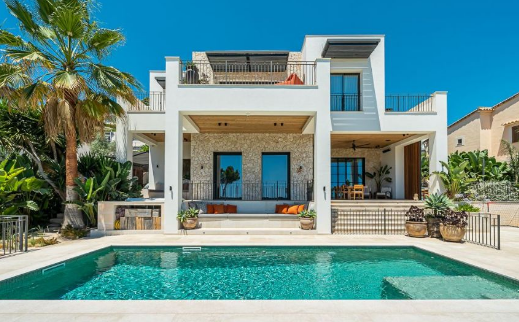
The Balearic Islands wants to restrict the purchase of homes by non-resident foreigners. With this aim in mind, the regional government announced at the beginning of the year the setting up of a commission to study the possibility of prohibiting the purchase of housing by citizens, foreigners or not, who have been living in the Balearic Islands for less than five years in the face of soaring house prices.
The initiative, which is being considered by the islands' government, made up of a tripartite group of PSOE, Podemos and Més, and led by socialist Francina Armengol, is inspired by Canada's decision to temporarily ban (2023 and 2024) the sale of homes to non-resident foreigners, after having experienced a spectacular rise in house prices of 44% in less than 24 months. Some sectors have criticised the measure, pointing out that less than 1% of the homes sold in the country were purchased by this type of buyer.
In the European Union, other countries such as Denmark and Malta require a minimum number of years of residence in the country, whether resident or non-resident, to be able to buy a home. Outside the EU, Australia and New Zealand have also imposed restrictions on house purchases by non-resident foreigners.
However, the Balearic proposal is contrary to the Treaty on the Functioning of the European Union (EU), as explained by the law firm Uría Menéndez in a report requested by the Balearic Property Developers' Association (PROINBA).
The study analyses the compatibility with EU law of a hypothetical law that would prohibit or restrict the purchase of properties in the Balearic Islands by individuals or legal entities not resident in the Islands or by persons with a period of residence in the Islands of less than 5 years. And the conclusions are clear.
On the one hand, the law firm states that "a regulatory measure prohibiting or limiting the acquisition of dwellings in the Balearic Islands by non-residents would restrict the two fundamental freedoms of the Treaty, such as freedom of establishment and free movement of capital". Therefore, he adds, "it would be directly contrary to the Treaty on the Functioning of the European Union, as well as to the Charter of Fundamental Rights. Moreover, the Act of Accession of Spain to the EU does not contain any exception to the application of these rights, so the restrictions would not be covered by it".
Secondly, the analysis of Uría Menéndez stresses that the measure proposed by the Balearic Government "would be considered as indirectly discriminatory by benefiting Spanish citizens and harming those of other EU Member States. This fact alone would be sufficient for the measure to violate EU law.
And its arguments go one step further. The firm stresses that even if "it could be considered that the measure is not indirectly discriminatory, it would be contrary to the Treaty because it is neither suitable nor indispensable for the achievement of possible objectives of general interest, such as the affordability of housing, the fight against property speculation or the promotion of economic activities other than tourism in the Balearic Islands".
To reinforce its position, Uría Menéndez recalls that the Court of Justice of the EU (CJEU) has ruled on several occasions on restrictions on the sale and purchase of real estate imposed by Member States and in all of them the ruling has looked in the same direction: they represent restrictions on the freedom of establishment and the free movement of capital.
Among the judgements that have created case law are, for example, the Konle, Reisch, Salzmann, Burtscher, Festersen and Segro cases, "concerning various European regions that have sought to impose restrictions on the sale and purchase of real estate in the past". And in all of them the measures were rejected by the Court, considering that they were "discriminatory and disproportionate, and were not the indispensable way to comply with the general interest of the country".
Leader in purchases by foreigners and with high prices
According to data from the Land Registrars, in the fourth quarter of 2022, the Balearic archipelago was the Spanish autonomous region where foreigners accounted for the greatest share of home purchases, representing 36.15% of transactions (i.e. between October and December, foreigners accounted for 36 out of every 100 home sales and purchases in the region). The next most prominent regions were Valencia (28.47%), the Canary Islands (27.25%) and Murcia (21.87%), while the national average stood at 14.7%.
As far as house prices are concerned, idealista data place the Balearic Islands as the region with the highest price per m2 in Spain in the pre-owned property market. In the first month of the year, the price stood at 3,647 euros/m2, after increasing by 8.8% year-on-year, putting it at a distance from the Community of Madrid (3,126 euros/m2), the Basque Country (2,787 euros/m2) and Catalonia (2,336 euros/m2).
As for the appraisal value of homes on the open market, the Spanish Mortgage Association (AHE) places the price per m2 in the Balearic Islands at 2,697 euros/m2 in the fourth quarter of 2022, after rising by almost 6% year-on-year. This is the second highest value in the country, only surpassed by the 2,888 euros/m2 registered in Madrid.